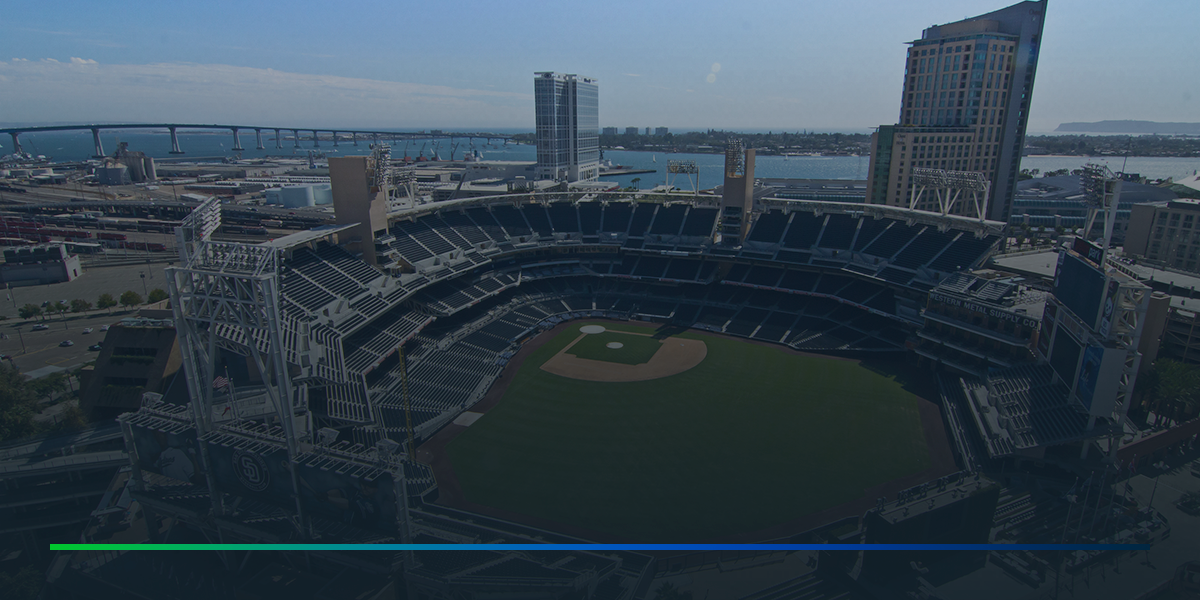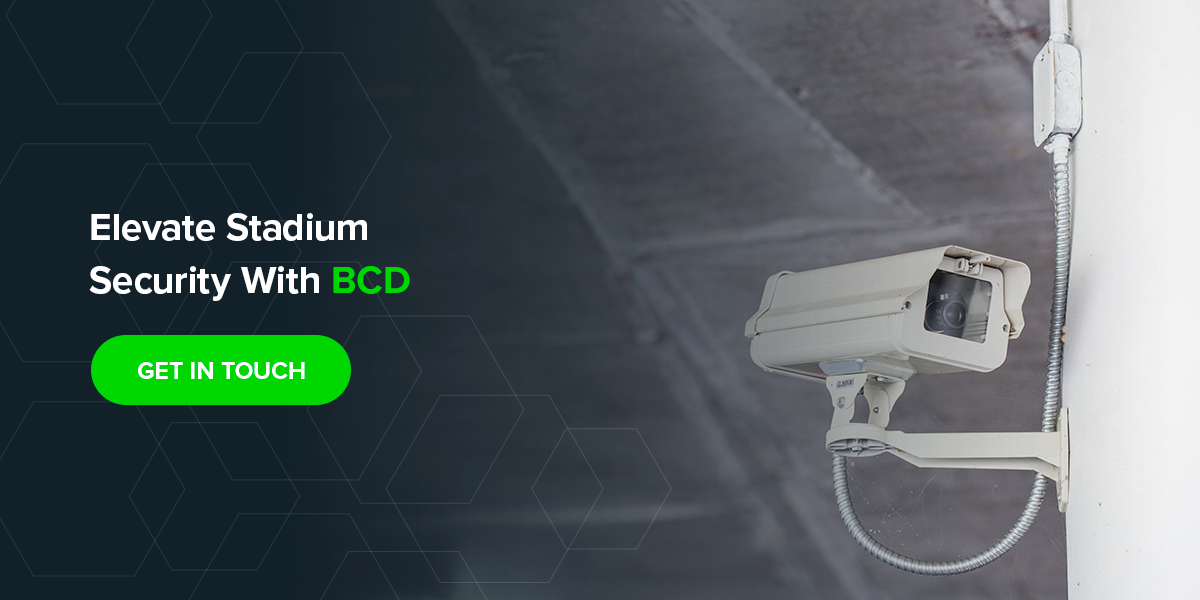Sports stadiums face some of the most challenging security challenges due to their massive scale and high-capacity crowds. Stadium security systems must monitor vast areas, including seating for tens of thousands, parking lots and tailgating spaces. For example, the 30 National Football League (NFL) stadiums in the United States have a seating capacity of at least 60,000, with more than five holding up to 80,000, and cover ten to 15 acres. These venues require sophisticated access control solutions.
To address these challenges, stadium security directors are turning to advanced video analytics and access control systems. These technologies enhance recording, playback and detection processes, revolutionizing how stadiums approach security and crowd management in an increasingly complex environment.
Challenges in Stadium Access Control and Security
When it comes to stadium security, there are many pain points that operators must address. The sheer scale and complexity of these venues present unique challenges that traditional security measures often struggle to overcome. Some of the critical issues facing stadium security teams today include:
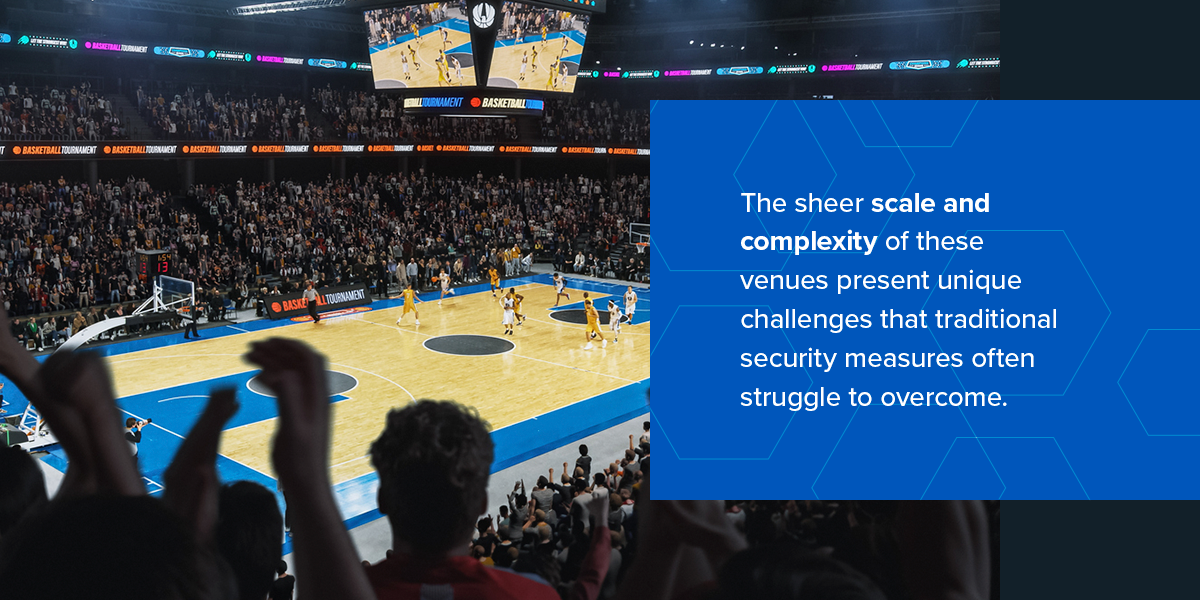
Limited Staffing and Coverage
Many stadiums have limited staff, and security officers can only cover part of the site. Additionally, the security operation centers (SOC), the most visible part of the video surveillance deployment, are often undersized. SOCs usually need more funding to upgrade and run video operations effectively.
Expertise Gaps in System Deployment
The general contractor is responsible for video surveillance deployments in many stadium security systems. However, they often do not understand the need for a properly working system that is purpose-built for large-scale security efforts. Additionally, consultant-supplied documents usually neglect to reflect what the end-user needs relative to their available budget.
Dynamic Image Complexities
Stadiums also present unique demands on video surveillance equipment. For example, image complexities can constantly change on game days, resulting in greater bandwidth in recording than on non-game days. Different stadium areas, from seating to concession stands to parking lots, have different application needs that require different cameras with distinct functionalities.
Camera Placement and Coverage Challenges
Determining the right camera angles and detection ranges requires skill to ensure all key areas are covered and that there are no blind spots. For multi-level stadiums with complex architecture, finding the right camera angles and having enough cameras to cover every inch of public space becomes particularly challenging.
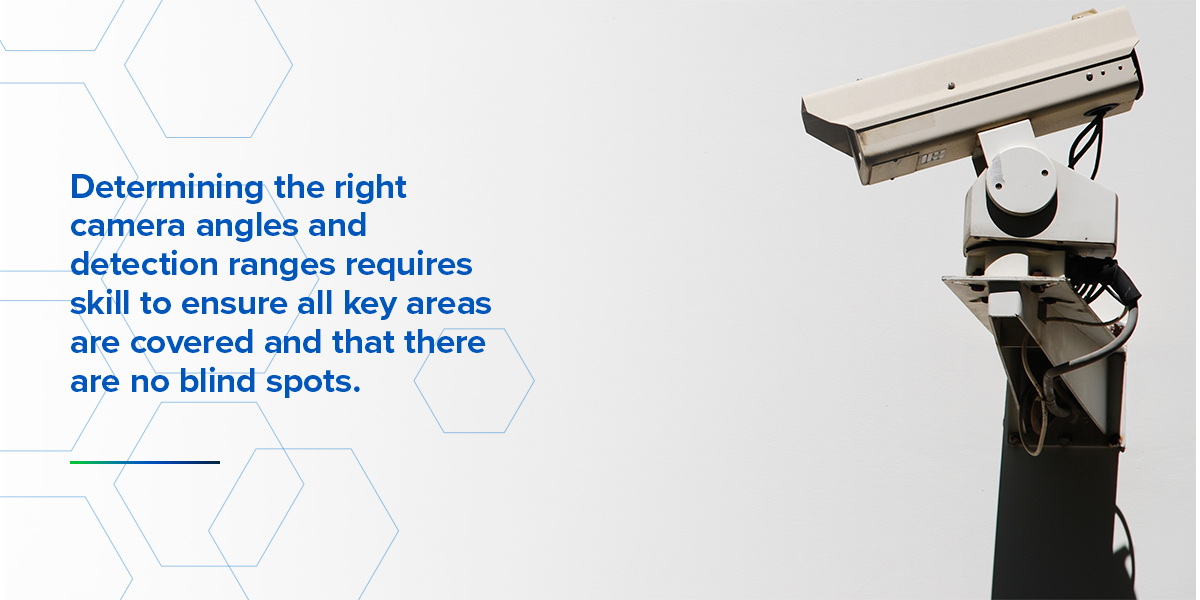
Limited Infrastructure Space
When it comes to video storage, the area designated for video data infrastructure is small. Due to the substantial storage requirements to support hundreds of high-resolution cameras in stadiums, more rack space is needed to accommodate all the equipment.
Crowd Management and Flow Control
Stadium access control is a critical challenge, especially during high-attendance events. Managing the flow of tens of thousands of spectators through entry points while maintaining security protocols can lead to bottlenecks and potential security risks.
Real-Time Threat Detection
Identifying potential security threats in a sea of faces is daunting for human operators. Traditional surveillance methods are often inadequate for spotting suspicious behavior or unauthorized individuals across vast stadium spaces in real-time.
Tailgating and Unauthorized Entry
Preventing unauthorized entry through tailgating — where an unauthorized person follows an authorized individual through a secure entry point — is a persistent challenge for stadium security teams relying on conventional access control methods.
How AI Video Analytics Represent a Solution for Stadium Access Control
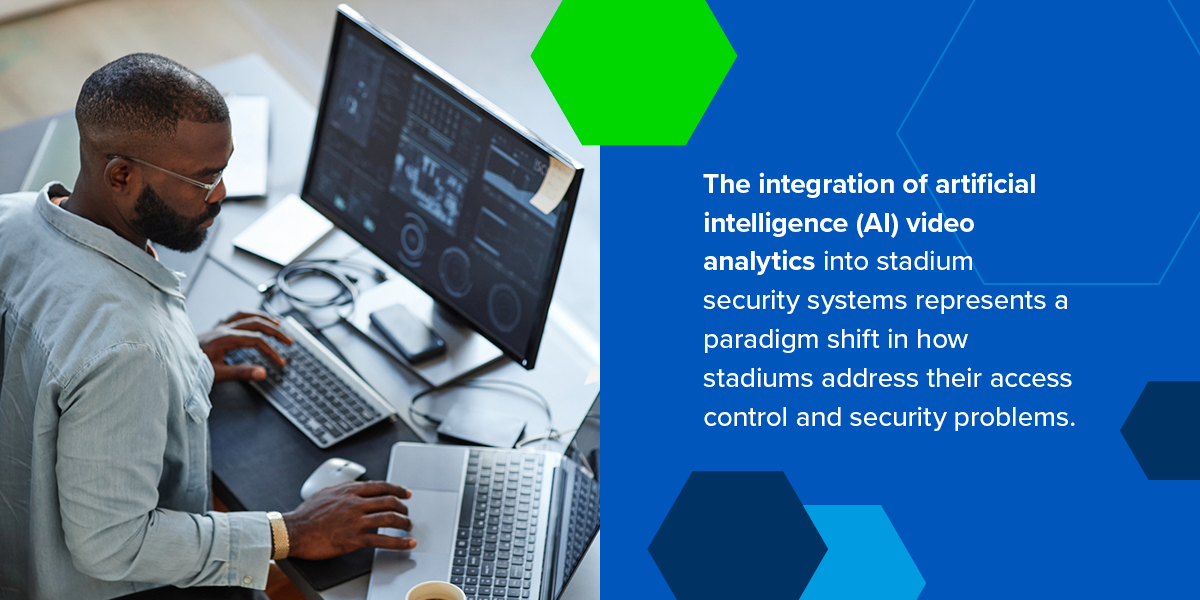
The integration of artificial intelligence (AI) video analytics into stadium security systems represents a paradigm shift in how stadiums address their access control and security problems. By leveraging advanced algorithms and machine learning (ML) capabilities, AI-powered access control solutions are transforming stadium security. Some ways these technologies are making a difference include:
Intelligent Traffic Management
For traffic flow and parking management, operators can configure video analytics to distribute and direct drivers to appropriate areas, simplifying the process of finding a spot and preventing traffic jams when drivers are trying to leave. AI video analytics can predict congestion points and dynamically adjust traffic flow, enhancing the spectator experience while maintaining security during high-capacity events.
Enhanced Loitering and Perimeter Breach Detection
Video analytics can alert security personnel when a security breach occurs or individuals loiter in unauthorized areas for too long using object detection and area monitoring functionalities without officers needing to monitor CCTV feedback constantly. This enhanced detection reduces workload and empowers personnel to respond to incidents more quickly. AI-powered access control systems can learn normal behavior patterns, making them accurate in identifying genuine security threats.
Advanced Threat Detection and Behavioral Analysis
AI Video analytics can also detect the faces of individuals who are known threats to an event, whether they are a stalker or someone banned from the stadium or event space because of a previous incident. AI access control systems can integrate with databases of known offenders, alerting security personnel in real-time if a match is detected. It can also detect unusual behavior patterns that may indicate security threats. This proactive approach allows security teams to intervene before incidents escalate.
Multi-Factor Authentication
Advanced AI-powered access control systems can incorporate multi-factor authentication (MFA), such as facial recognition, biometrics and smart tickets, enhancing security while streamlining the entry process for authorized individuals.
The Importance of Data Management for Stadium Security Systems
Proper data management is crucial for effective stadium security systems. The vast amounts of data these technologies generate require robust storage and management solutions to ensure optimal performance and security. Data management is vital for modern stadium security for the following reasons:
- Scalability for high-volume data: Stadium security systems generate enormous volumes of data, especially during major events. Proper data management ensures that this influx of information can be handled without compromising system performance or security measures.
- Real-time processing capabilities: Effective data management solutions enable AI video analytics to process information in real-time, allowing for immediate threat detection and rapid response to security incidents.
- Data integrity and security: Maintaining the integrity and security of collected data is paramount. Robust data management systems protect sensitive information from unauthorized access or tampering, ensuring compliance with data protection regulations.
- Efficient storage and retrieval: Advanced data management solutions optimize storage utilization and enable quick retrieval of historical data for investigations or audits.
- Integration of multiple data sources: Modern stadium security systems often incorporate data from various sources, including cameras, access control points and ticketing systems. Effective data management facilitates the seamless integration and correlation of these diverse data streams.
- Analytics and insights: Sound data management enables stadiums to leverage their security data for valuable insights, such as identifying patterns in crowd behavior or optimizing resource allocation based on historical trends.
To ensure video and metadata from AI-integrated surveillance systems are properly recorded, processed and stored, system integrators should partner with a trusted advisor and leading provider of video data infrastructure like BCD.
AI-Video Analytics Solutions From BCD to Revolutionize Stadium Security
BCD’s cutting-edge AI video analytics solutions are tailor-made to address the unique challenges of stadium security systems. By leveraging advanced AI and ML algorithms, BCD’s technology transforms raw video data into actionable intelligence, enhancing stadium operations and security.
Our GPU-accelerated video analytics tools, including the state-of-the-art Milestone Rapid Review appliances, enable security teams to process extensive footage in record time. This capability is crucial for access control in stadiums, allowing operators to swiftly identify potential threats, manage crowd flow and respond to incidents in real time.
BCD’s solutions also seamlessly integrate with existing stadium security systems, offering a cost-effective way to upgrade capabilities without overhauling entire infrastructures. Our hardware is validated to work with various leading video analytics platforms, ensuring compatibility and optimal performance.
Our technology excels in facial recognition, object detection and behavior analysis for AI-powered access control. Once system integrators have fitted our technology, stadiums can implement MFA systems, detect known offenders and identify suspicious activities amidst large crowds.
Elevate Stadium Security With BCD
AI video analytics and access control are revolutionizing stadium security systems, offering unprecedented levels of safety and efficiency. BCD’s cutting-edge solutions address the unique challenges faced by large venues, from crowd management to threat detection. By leveraging our expertise in video analytics and data management, system integrators can help stadiums enhance their security posture while optimizing operations.
Don’t let your venue fall behind — contact BCD today to explore how our innovative technologies can transform security and access control in your stadium and create a safer environment for all.

